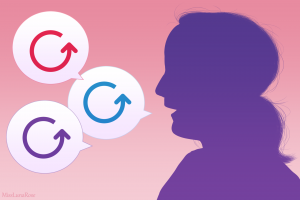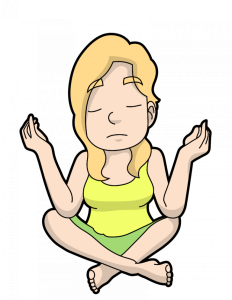Obsessive Compulsive Disorder
What Is Obsessive-Compulsive Disorder?
 Obsessive-Compulsive Disorder (OCD) is a common, chronic, and long-lasting disorder in which a person has uncontrollable, recurring thoughts (obsessions) and/or behaviors (compulsions) that he or she feels the urge to repeat over and over.
Obsessive-Compulsive Disorder (OCD) is a common, chronic, and long-lasting disorder in which a person has uncontrollable, recurring thoughts (obsessions) and/or behaviors (compulsions) that he or she feels the urge to repeat over and over.
To meet the criteria for Obsessive-Compulsive Disorder, these habits have to meet certain criteria, including:
- Take up to an hour a day
- They are beyond your control
- Aren’t enjoyable
- Interfere with work, your social life, or another part of life
There are many forms of OCD. Some of the most common types of OCD fall into four major categories, including:
- Checking, repeated worry about locks, alarms, or ovens, and checking on them multiple times
- Contamination, repeated worries about things being dirty, and a compulsion to clean
- Symmetry and ordering, things needing to be even or lined up a certain way
- Ruminations and intrusive thoughts, an obsession a repetitive type of thought such as ruminating thoughts about hurting others that are disturbing to the person having the thought
When is OCD diagnosed?
Most people are diagnosed with OCD by the age of 19, with boys being detected earlier than girls. Child psychiatrists often diagnose and treat OCD because OCD often appears in childhood.
What are the causes of OCD?
There is a genetic risk of developing OCD if it exists in the family. People with first-degree relatives with OCD have a higher risk of developing OCD themselves. Children with a history of trauma are also more likely to develop OCD. There are also infectious causes of developing OCD, such as after a Streptococcal Infection. Imaging studies of the brain show that there are differences in the frontal cortex and subcortical regions of the brain in people struggling with OCD.
Similarity To Autism Spectrum Disorder
Many people with Autism Spectrum Disorder also have Obsessions and Compulsions, similar to OCD. However, the key difference between OCD and Autism is that patients with Autism have a key deficit in social communication. Patients struggling with OCD have obsessions and compulsions, but do not have significant social deficits in understanding social cues that patients with Autism Spectrum Disorder struggle with.
State-of-the-art OCD treatment in Princeton, NJ
 We at MOOD EDENprovide comprehensive, personalized care to help our clients overcome OCD right here in Princeton, NJ. It starts with an assessment of your OCD, including filling out a scientifically designed questionnaire to quantify and measure your OCD symptoms. Dr Memon will also ask you for detailed mental health and medical history.
We at MOOD EDENprovide comprehensive, personalized care to help our clients overcome OCD right here in Princeton, NJ. It starts with an assessment of your OCD, including filling out a scientifically designed questionnaire to quantify and measure your OCD symptoms. Dr Memon will also ask you for detailed mental health and medical history.
Once your history is completed, we help create personalized treatment plans that combine medications, lifestyle modifications, and other holistic therapies to address your specific needs. Medications that are commonly used for treating Obsessive-Compulsive Disorder include selective serotonin reuptake inhibitors like Luvox or Prozac. For those interested in more holistic treatments, Dr. Memon can provide an evidence-based vitamin regimen for the treatment of OCD. There are also behavioral treatments that can help the patient temporarily cope with the anxiety of OCD, such as knitting. However, clients wishing to get the quickest and longest-lasting results are strongly encouraged to do Cognitive Behavioral Therapy(CBT) for OCD.
For you or your loved one to stop having obsessions and compulsions, make an appointment by calling us at 609-601-4161